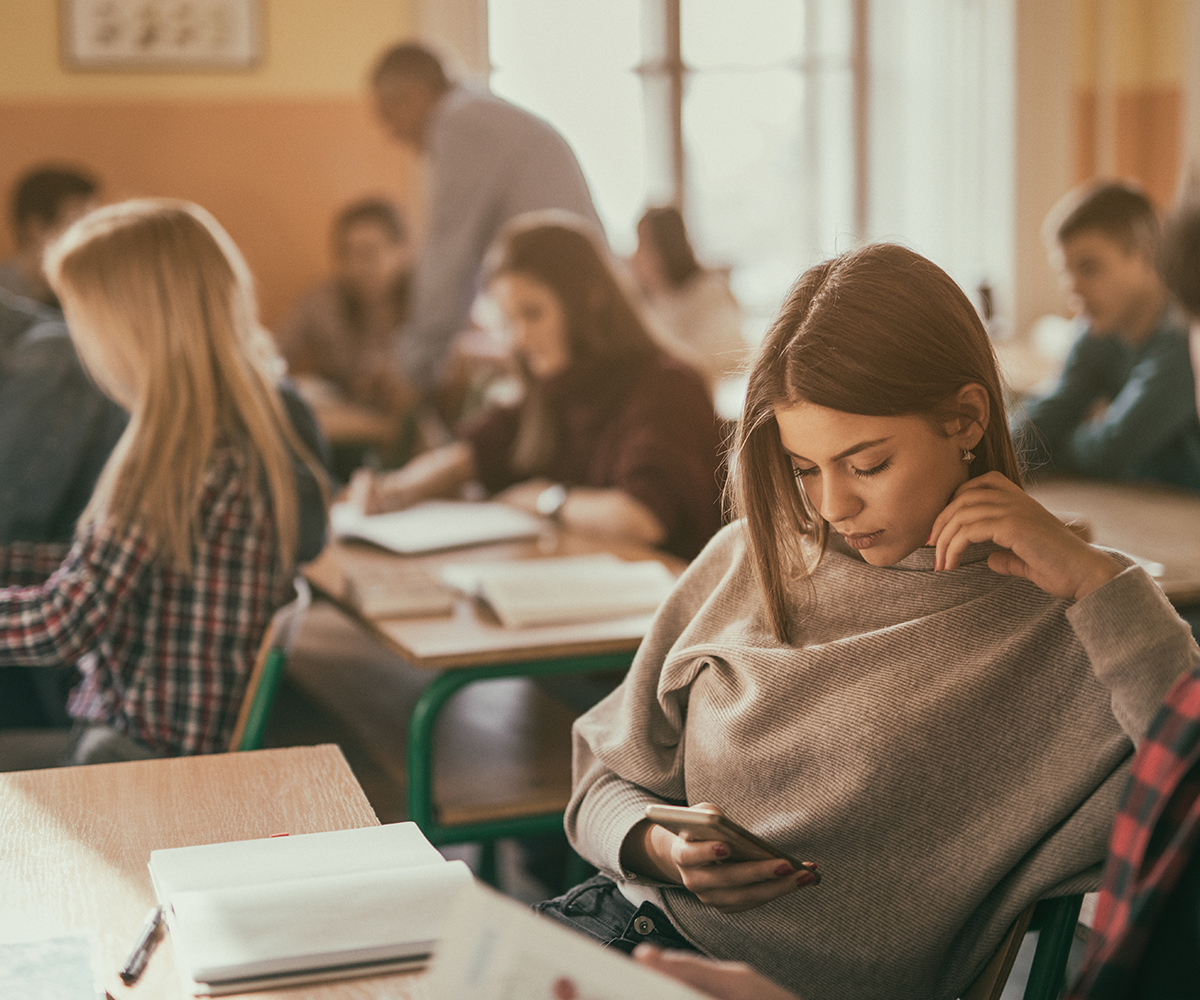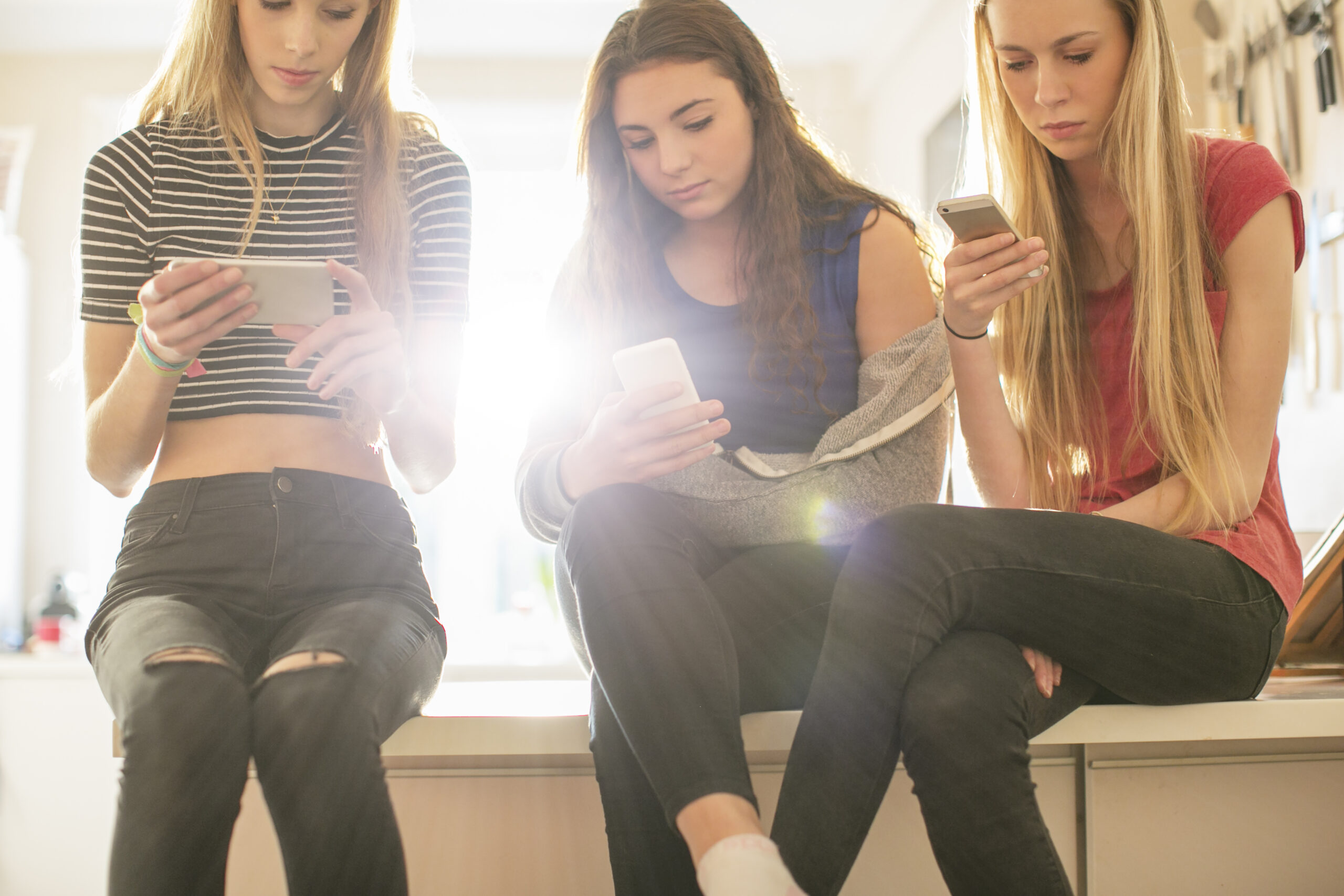New Zealand’s largest secondary school has reported a drop in student academic performance due to students using their devices in class to shop, game or follow social media.
In a newsletter that was emailed to parents on Wednesday, Rangitoto College associate principal Tony Giles said, “Many parents have expressed concern to us regarding the amount of screen time their teenagers are exposed to. Others have also reported concern at students accessing social media and gaming (and sometimes shopping!) sites during class time.
“As teachers and parents we share those concerns… We have also noted a drop-off in academic performance with a number of students.”
Giles said that students who wear their headphones in class are “making the least progress”.
“We have noted a clear correlation,” he said.
Giles told Now To Love that it was difficult to quantify how much grades had dropped by due to school-wide marks being “balanced by top students doing better”.
“But various sub-groups have shown a slight decline. For example, our L2 priority boys have dropped around two per cent.
“We’re also concerned about falling literacy rates which don’t show up so much in examination results, but become a barrier to tertiary success later on,” he said.
The school is enforcing a rule of ‘no listening to music on personal headphones in class’ this year. Giles said “this has always been a rule, but the school has been a bit haphazard in enforcing it”.
Rangitoto has also introduced other initiatives:
• Students must place their phones in a box at the front of the classroom – this was trialled in some classes last year and proved successful.
• Scaled back wifi use for students. Students will be limited to only being able to access wifi on one device, their BYOD. “This too will support a more appropriate use of that resource.”
Giles said most high schools in New Zealand, and world-wide, reported similar issues to Rangitoto. He believes these are now also filtering into primary and intermediate schools.

At Glendowie College, principal Richard Dykes said he has not noticed a drop in student academic performance – in fact, grades have been on the rise in recent years – but he foresees Glendowie “going down the same path” as Rangitoto in terms of introducing stricter measures around device use.
“At the moment we are making a big thing about not wearing headphones walking in and out of class because what we’re finding is students are just zoned right out and that’s not okay; you need to be paying attention to what’s happening around you and to your teacher and so on.”
Other colleges such as Saint Kentigern and Macleans College in Auckland have banned phone use during school hours.
Dykes, who is also the president of the Auckland Secondary Schools’ Principals’ Association (ASSPA), says he is concerned about the amount of time secondary schools have to spend playing “constant cat and mouse” with students to keep them from using their devices for activities other than class work.
“I think there’s a lot of questions being asked now around unfettered use of devices which is, in effect, what students have got.
“It’s a case of the technology having just raced away from everyone. Obviously devices are useful, they allow students to access information; the productivity from them, in terms of learning, is definitely advantageous, so we wouldn’t want to throw the baby out with the bath water.”
But he said teachers needed to be “savvy about how kids are using devices in class” and he cites VPN (virtual private network) as an ongoing issue for schools.
“With VPN, basically when students hook into that they can bypass the internet controls [that the school puts in place]. Once they find a new VPN they then email that around all the students and they all go onto that. Two days later we’d lock that out and then they’d find another one so we were just playing cat and mouse.
“It’s all going to become irrelevant though as students get their own data, which means they’re going to be able to bypass the computer network.”
Buy-in from parents is going to be key going forward, Dykes says, because all of this is “happening at home too”.
New studies show that teenagers are spending around six hours a day online on weekends and sleeping less than they were four to five years ago due to time spent online.
“Kids waste hours zombie surfing,” Dykes reveals. “You’ve got teens talking to one another at 2am. I’m just wary people are going to say this is a problem in schools and schools need to sort this out, when this is actually a society-wide issue which is about how do we ensure that we’re protecting our students at a really key developmental stage.
“Teen students are susceptible to peer pressure, they’re highly susceptible to addiction behaviour.”




